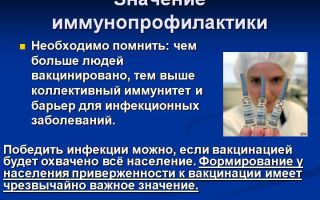Content
The benefits and harms of vaccinations have been debated since the inception of vaccines. The reason is the indisputable useful properties of preventive measures and the likelihood of serious consequences.
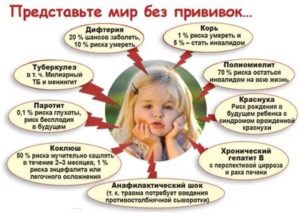
What is vaccination and what is it for
Inoculation experts call a set of parts of harmful microorganisms or whole microbes, differing in a modified form and introduced into the human body to form immunity to a specific infection. Such vaccinations are considered prophylactic (protective) due to their focus on preventing dangerous infectious diseases that can be harmful.
Vaccinations are differentiated depending on their properties:
- a microorganism artificially weakened and causing the disease (polio vaccine);
- substances considered toxic to humans and produced by harmful microorganisms during their vital activity;
- blood serum of animals resistant to infection by artificial means.
Proponents of immunization argue that the benefits of vaccinations are undeniable. It was the vaccination that made it possible to increase the duration of human life.
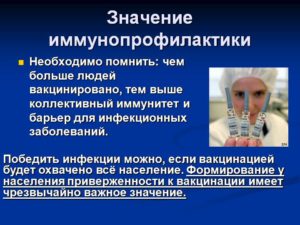
Are vaccinations dangerous?
Doctors are divided on the dangers of vaccinations. Modern vaccination is a drug, the properties of which depend on the type of vaccine. The harm and danger of vaccination are due to the presence of substances poisonous to humans:
- Merthiolate... The organic compound contains mercury, which opponents of immunization believe can cause the characteristic symptoms of heavy metal poisoning. It should be borne in mind that poisoning can only be observed when inhaling metal vapors. Vaccination has different properties. Merthiolate is fatal in 50% of cases when high doses are administered. Vaccinations contain a tiny dose of a substance that is not capable of causing serious harm.
- Aluminum hydroxide... The compound is included in useful intramuscular vaccinations. The presence of aluminum hydroxide has a beneficial effect on the formation of an adequate immune response. The substance is not harmful, since the compound is gradually excreted from the body on its own.
- Formaldehyde... This substance is produced by the cells of the body and utilized by special mechanisms. The harm of formaldehyde is greatly exaggerated due to the subsequent disposal of the substance and the formation of non-toxic components.
- Phenol... The Mantoux test includes this substance. Own cells form phenol in large quantities, which proves the absence of harm and the presence of utilization mechanisms.
The benefits of preventive vaccinations are significant. The beneficial properties of vaccines are provided due to their constituent components. In high doses, they can be harmful. Experts emphasize that even the most dangerous vaccinations contain low doses of substances that are unable to harm health.
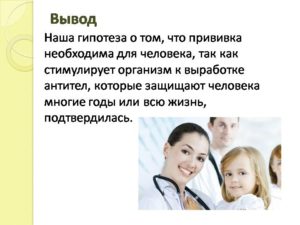
Arguments against vaccination
Interestingly, the arguments against vaccination have emerged in parallel with mass immunization.As a rule, evidence of the harm of vaccines is quite subjective and is associated with emotional speculation, religious and pseudoscientific arguments. People who oppose vaccinations often lack medical education and have not experienced the consequences of not being vaccinated.
The main arguments in favor of the ineffectiveness of vaccinations include:
- Lack of complete protection against disease. It must be borne in mind that the vaccine protects not so much from the disease, but from dangerous complications that are harmful to health and can lead to death. Vaccination is of significant benefit to children. Some infectious diseases cause significant harm in childhood. A useful property of immunization lies in the mild course of the disease, which can be cured without consequences.
- Vaccinations are not needed due to the absence of epidemics. According to observations and studies, a massive refusal to vaccinate is dangerous for an epidemic. There is also the possibility of mutation of the strains.
- The harm of vaccinations for adults and children is due to the presence of hazardous components. Each product contains preservatives that may have side effects due to their characteristic properties. However, the concentration of these components is too insignificant to cause serious harm to health. All medicinal products undergo the necessary tests, which are a prerequisite for their entry to the market and direct use.
- The harm of vaccinations to newborns outweighs the benefits due to gross interference with immunity. The harm from vaccination includes the development of allergic reactions, SARS, chronic pathologies. In fact, only healthy babies who can handle the appropriate workload are allowed to immunize. The admission is compulsory examinations by a pediatrician and laboratory tests, proving the adequate functioning of the body. A system of contraindications for children with reduced immunity has been developed.
- Adverse reactions to vaccinations lead to the development of severe chronic diseases that can be harmful. The fear is related to the presence of hazardous substances in vaccines. There is currently no scientific evidence to support the benefits and harms of vaccinations for children.
- Side effects lead to disability. The frequency of undesirable effects is comparable to those after the use of other medications. Serious complications that are harmful to health are relatively rare (one case in 10,000 vaccinations). As a rule, they are associated with non-compliance with the basic rules of immunization. Some people misinterpret the condition after being given the vaccine. It is necessary to differentiate the response to the drug and the development of complications.
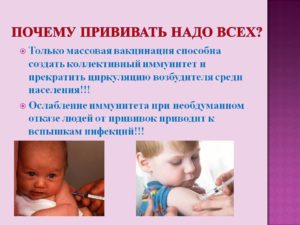
Possible side effects of vaccinations
A useful vaccination refers to an immunobiological drug that leads to the necessary changes in the form of the formation of immunity to some serious infectious diseases. However, the likelihood of the occurrence of undesirable reactions associated with the properties of drugs introduced into the body cannot be ruled out.
In general, side effects (short-term fever, local reaction) are considered normal. These phenomena reflect the formation of immunity and are associated with the penetration of foreign antigens into the child's body. The benefits of vaccinations for children are noted with unexpressed reactions, which indicate a high activity of immunity. Their absence refers to an individual property of the organism.
If severe adverse reactions occur (temperatures over 40 ° C), you must inform your doctor.The specialist will carry out the necessary treatment measures, as well as fill out important documents to control the quality of vaccinations. If several people experience undesirable effects, a batch of the drug is confiscated for detailed verification.
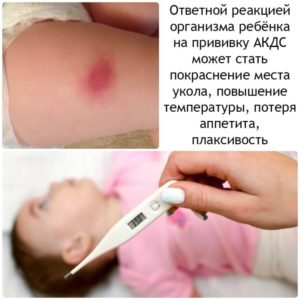
Exacerbation of gastritis after rubella vaccination is not associated with the action of the drug. This vaccination is characterized by the occurrence of swelling in the area of large joints.
There are general and local adverse reactions, the incidence and nature of which depend on the type of vaccine. Local reactions include:
- edema;
- redness or flushing;
- soreness;
- local seal.
The cause of local reactions is considered to be aseptic inflammation due to the action of the drug or an injection that injures the skin and muscle.
Common side effects include:
- increased temperature;
- rash;
- crying and anxiety;
- cold limbs;
- lack of appetite;
- dizziness and headache.
Often there are effects such as rash and fever associated with the properties of the drugs. The rash is caused by the introduction of antiviral agents and the penetration of the microorganism into the skin. This phenomenon is not harmful. Hyperthermia is a kind of immune response. In case of contact of immune cells and antigens, pyrogens are released into the blood, which leads to an increase in temperature.
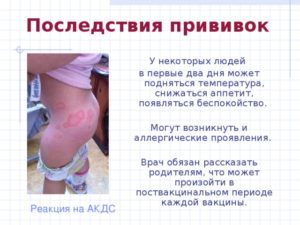
Development of complications
Quoting scientists about the dangers of vaccinations, it is necessary to understand that vaccination saves millions of lives, but can seriously harm a few. The development of complications depends on the properties of a particular vaccine and the individual characteristics of the person being vaccinated.
Post-vaccination reactions are of an unexpressed short-term nature, pass on their own and do not cause harm. The development of complications cannot be predicted, however, a thorough examination before vaccination and adherence to certain rules is the prevention of their occurrence. Post-vaccination complications are long-term, go beyond physiological norms and can be harmful to health.
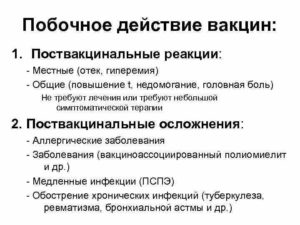
Post-vaccination complications are:
- toxic or severe;
- allergic, accompanied by symptoms of disorders of the functioning of the nervous system;
- rare.
PVO is differentiated from the complicated progression of the post-vaccination period. In this case, there are complications associated with vaccination that are not associated with vaccination.
Air defense usually includes:
- anaphylactic shock (within 24 hours);
- Quincke's edema, Lyell's or Steven-Johnson's syndrome;
- encephalitis;
- serum sickness;
- encephalopathy;
- neuritis;
- meningitis;
- polyneuritis (Guillain-Barré syndrome);
- convulsions (throughout the year);
- paralysis;
- vaccine-associated poliomyelitis;
- violation of sensitivity;
- myocarditis;
- hypoplastic anemia;
- collagenoses;
- an ulcer or abscess at the injection site;
- a decrease in the number of leukocytes in the blood;
- lymphadenitis;
- keloid scar;
- osteitis;
- cry for 3 hours (child);
- sudden death.
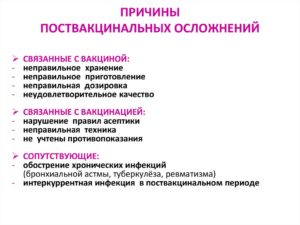
The reasons for air defense include:
- vaccination against the background of contraindications;
- violation of instructions for the administration of the vaccine;
- poor quality of the drug;
- individuality of human properties and reactions.
The video contains information about the dangers of vaccinations:
The benefits of vaccinations
It is difficult to say with certainty whether vaccinations are harm or benefit. This is due to their properties and the individual characteristics of the person being vaccinated.
Vaccinations are beneficial for both children and adults. Their useful property is to prevent epidemics of certain serious diseases.However, certain negative properties that appear when instructions are not followed cannot be ignored.
The beneficial effect of vaccinations provides for the emergence of resistance to infections and the so-called memory cells. When the microbe enters the body, the formed antibodies will begin to act. The benefit lies in preventing the development of the inflammatory process. Otherwise, the production of antibodies will take time, and a person may die if there is a dangerous infection.
A useful property of vaccination involves the production of antibodies (memory cells) when a person is not sick. Weakened pathogens are introduced into the body and cannot cause disease. However, this is sufficient for the formation of memory cells.
Thanks to vaccination, a useful specific immunity develops. It does not fully affect the immune system, but only its individual links.
The production of useful antibodies is possible only when the immune system comes into contact with the pathogen, which occurs either with a disease or with the introduction of a vaccine. Infection is fraught with dangerous consequences (infertility, arthritis), up to and including death. Vaccination involves the introduction of weakened or dead pathogens into the body. This beneficial exercise allows for the formation of an immune response against a specific microbe.
Reminder for parents who vaccinate their child
Immunization is carried out according to the calendar. Identification of contraindications is the reason for the shift of the date of immunization.
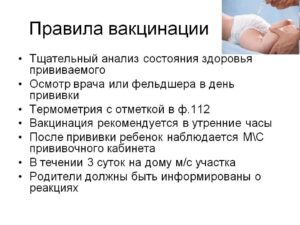
Before giving vaccinations, it is recommended to take into account the basic rules that will help to transfer interference with immunity and minimize the risk of air defense:
- it is undesirable to bathe and walk with the child for two days after immunization, since hypothermia, contact with other people can cause additional stress and ARVI;
- when the temperature rises above 37.5 degrees, an antipyretic should be given;
- a local reaction requires consultation with a specialist and the use of antihistamines.
The child should be completely healthy for 2 weeks before immunization. The conclusion about the state of health at the time of the vaccination includes the performance of laboratory diagnostics of urine and blood.
Conclusion
The benefits and harms of vaccinations are obvious not only to specialists. This preventive method is optional. However, its beneficial properties often prevent dangerous consequences in case of illness.

